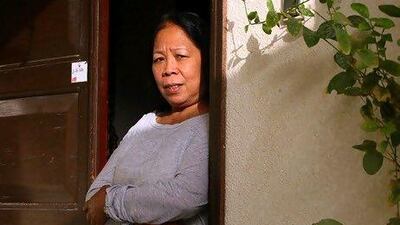ABU DHABI // The Philippines plans to phase out the migration of maids, nannies and other household workers over the next five years, according to a Manila newspaper.
The programme to counter abuse of domestic workers overseas will affect about 180 countries, and is expected to be ready for implementation by the end of this year.
The aim is to provide alternative jobs for household service workers, either in the Philippines or in approved countries overseas.
More than half of the 96,583 Filipinos who went abroad to work as domestic staff in 2010 migrated to Arabian Gulf states. Hong Kong was the top destination, with 28,602, followed by Kuwait with 21,554, the UAE with 13,184, Saudi Arabia with 11,582 and Qatar with 9,937.
Nasser Munder, the Philippine labour attache in Abu Dhabi, said: "We haven't been informed about the programme, but I believe it will apply to selected countries where abuse is rampant."
Hans Cacdac, head of the Philippine overseas employment administration, which is behind the phase-out programme, told the Philippine Daily Inquirer that some types of domestic work, particularly in parts of Europe, were "high-paying and protective" and may be allowed to continue.
The UAE chapter of Migrante, a migrant rights group, welcomed the government's move, which it said was "long overdue".
But domestic workers should be consulted on the phase-out programme, said Karen Tanedo, the group's chairperson.
"The procedures should be laid down properly to the HSWs who will be directly affected," she said. "Plans must be disclosed to answer the real root cause of the programme, which is poverty."
She said the government should have a "genuine" solution to provide jobs in the country, instead of sending workers to other countries.
Lito Soriano, the chief executive of LBS Recruitment Solutions in Manila, was sceptical.
"The government should take a reality check," he said. "There is a decline in the deployment of skilled and professional male workers abroad because many lack work experience. Female college graduates, however, have a job recourse. There are unemployed female accountants, nurses and teachers who end up working as domestic workers abroad to support their families."
Mr Soriano, who is also adviser to the Coalition of Licensed Agencies for Domestic Services, said families rely heavily on remittances from family members overseas. The phase-out programme, which seeks to reduce the number of Filipinos seeking domestic work, will lead to a sharp decline in remittances to the Philippines, he said.
"It will not work," he said. "Filipinos will still leave the country and will be among those who are undocumented or did not go through the overseas employment administration."
Many teachers and nurses in the Philippines are forced to work as maids overseas because of a lack of opportunities and meagre salaries at home, said Virginia Lopez, 51, a housemaid in Al Ain since 1997.
"I know that the salaries of teachers are better now," said Mrs Lopez, who worked for three years as a teacher in the Philippines.
"Back then, I wasn't earning much as a public-school teacher. Now I earn more than double."
However, she said, there are risks in working abroad as housemaids.
"Many domestic workers are being mistreated but are still willing to make sacrifices for the sake of their families," she said.
On finding alternative work for domestic staff in the Philippines, Mr Cacdac told the Inquirer: "The first step is to identify prospective their skills, further develop these skills, and then move on to the industries through those government agencies."
Maids, nannies, gardeners, private tutors and family drivers are among the jobs that fall under the category of household service workers. Most of them are women.
About 499,495 Filipinos took work as domestic staff worldwide from 2006 to 2011, but this figure does not include undocumented workers, according to the Manila newspaper.
Mr Cacdac's administration is analysing its statistical data on the profile of overseas foreign workers who are employed as domestic workers. He told the Inquirer that the sector did not represent a majority, but their numbers were increasing: in 2011, it reached more than 142,000, compared to an average of 60,000 to 70,000 a year in previous years.
The phase-out programme, which is still in the "conceptual framework and development stage", will involve a review of the domestic workers' data: their education and job profile, age, gender and region of origin in the Philippines.
Mr Cacdac said the Philippine labour secretary Rosalinda Baldoz told him that she wanted the administration to develop a broader programme to help provide job options other than domestic work, according to the Inquirer.
Mr Cacdac, who assumed his post in January, said there was "nothing shameful about being a maid or a domestic worker", according to the Inquirer. Many are nurses and teachers who would be able to find alternative jobs in the Philippines or abroad, jobs that would pay them well and make them less vulnerable to underpayment and other forms of mistreatment.
rruiz@thenational.ae

Philippines aims to halt migration of domestic workers
The programme to counter abuse of domestic workers overseas will affect about 180 countries, and is expected to be ready for implementation by the end of this year.
Most popular today
